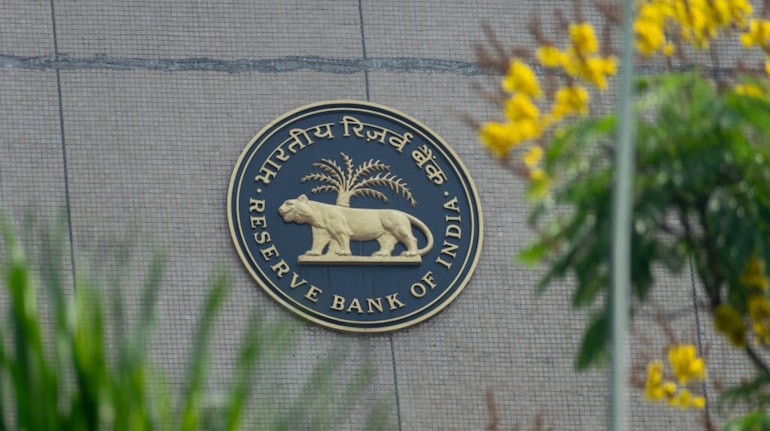



The RBI policy of October 1, may be long remembered as a banking reforms policy than a monetary policy. In one fell swoop it has ushered in seminal changes removing archaic controls on banks and replacing supervisory regulation with regulation by market forces. In a way it has continued the theme it began in June when it drastically cut the cash reserve ratio from 4% to 3%.
But the latest policy first. One of the most important decisions announced in the policy is to allow banks to finance acquisitions. Over two decades ago RBI had stopped banks from financing acquisitions so that scarce Indian savings and capital is deployed to grow the economy by creating new capacities rather than to help promoters try and take over existing plants. Now with Indian capital markets generously providing growth capital to companies via IPOs, the RBI probably thought it's time to allow Indian banks fuller play to grab all kinds of growth opportunities.
Sources say the SBI Chairman CS Setty, had made a strong pitch to the RBI governor last month that banks be permitted to finance acquisitions. Speaking to CNBCTV18 after the announcement, Mr Setty held out this step as among the most important of the dozen other steps the RBI announced in the policy to un-fretter banks.
With the availability of bank finance it is possible that India Inc may step up acquisitions especially in sectors like cement, textiles, FMCGs, consumer goods where the productive capacity is widely dispersed in many small entities.
But more than the impact on the economy, it is the RBI's changed attitude to banking sector that catches the eye.
Besides M&A financing, the RBI has also proposed to do away with a 2016 rule which limited exposure of large groups to the banking sector to Rs 10,000 crore. This ceiling was introduced as a guard-rail after many large infrastructure and construction companies defaulted leading to a surge in bank NPAs from 2013 to 2018. The rule was also meant to prod large conglomerates to go to the bond market to raise money. Doing away with this ceiling appears to indicate that the RBI believes banks and corporates are better judges of whom to lend to and borrow from. As well, the wholesale improvement in the quality of bank and corporate balance sheets may have led the RBI to do away with these ceilings.
Equally important RBI was wary of allowing banks and their associate companies to engage in overlapping businesses, lest one group entity help evergreen loans given by another group entity. It has now done away with all restrictions on overlapping activities, thus reiterating its faith in markets to keep banks on their toes. Another credit inducing step is doing away with the cap on loans against debt securities.
Yet another major market-based reform is RBI permitting risk-based deposit insurance, a step that will seminally advantage large well-run banks. Until now, all banks paid a flat premium to insure their deposits. The SBI chairman pointed out that last year his banks paid Rs 5400 crore to insure deposits and this was one of his biggest cost-items. This figure is likely to dip sharply for strong banks once the risk-based deposit insurance takes off.
Yet another bonanza for banks today is the RBI announcing that it will implement the Basel framework on standardised approach to credit risk. Basically this means every loan category will have to be backed by capital as per global norms. The RBI added that this will mean lower capital requirements to back MSME loans and residential real estate loans. Cheaper loans to both these categories can well set off a virtuous growth cycle.
Among other minor steps announced, RBI has also raised the cap on loans against shares to an individual to Rs 1 crore from Rs 20 lakh earlier, and loans to apply for IPOs to Rs 25 lakh from Rs 10 lakh earlier. These were more in the nature of adjusting for inflation.
Underneath all these reforms, including the massive CRR cut in June appears to be a change in RBI's philosophy towards banks. Since the late sixties when India nationalised all big banks, the banking sector was seen as primarily a means to help the government finance its development activities and help the regulator maintain financial stability.
But now with Indian capital markets having matured, a lot of the financing for growth is being met by markets. Also banks themselves are facing severe competition for savings from mutual funds and other equity market investment vehicles. The RBI probably believes the time has come, therefore, to un-fretter banks and allow them to grow in ways and sectors they see fit with the market disciplining any wrong actions rather than the regulator imposing do's and don'ts.
This policy clearly indicates a coming of age of Indian banking and of Indian banking regulation. Not surprising the Bank Nifty was the best performer on policy day. And investors may be just about waking to this seminal change that the RBI has initiated.
Discover the latest Business News, Sensex, and Nifty updates. Obtain Personal Finance insights, tax queries, and expert opinions on Moneycontrol or download the Moneycontrol App to stay updated!
Find the best of Al News in one place, specially curated for you every weekend.
Stay on top of the latest tech trends and biggest startup news.